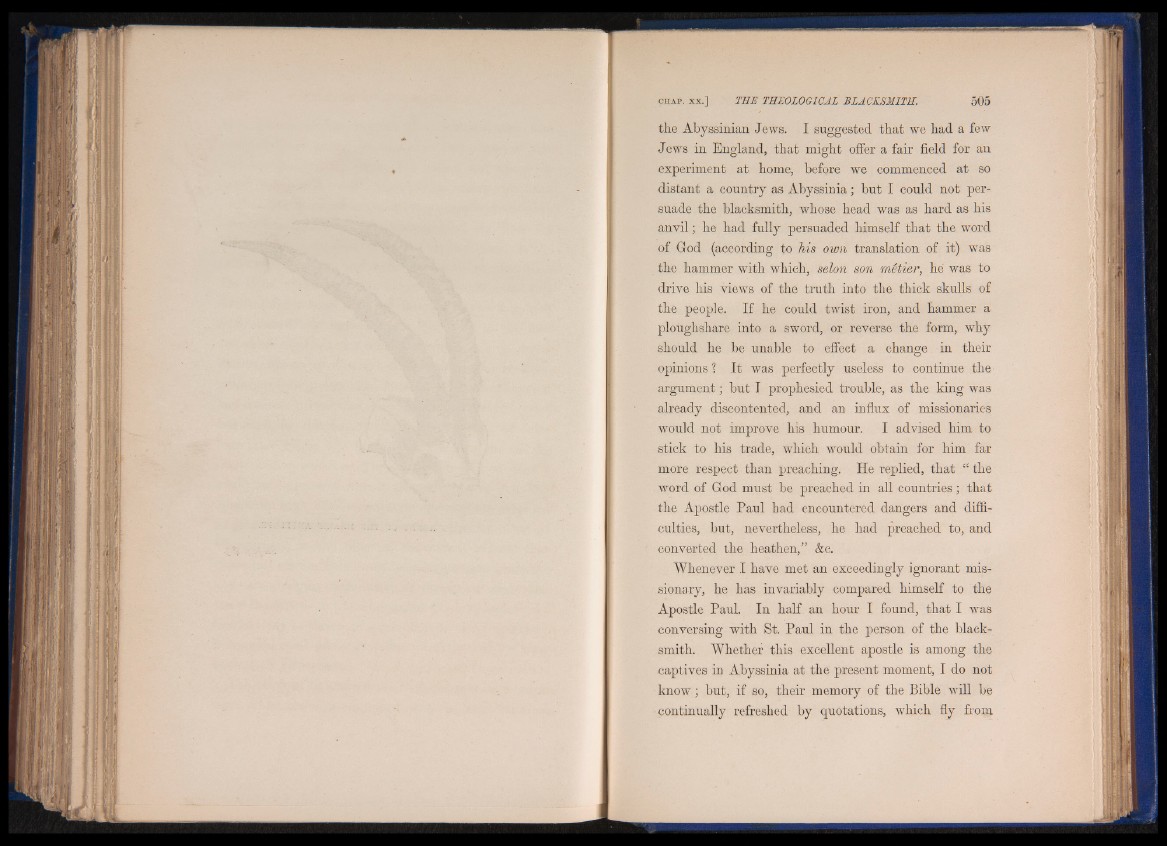
the Abyssinian Jews. I suggested that we had a few
Jews in England, that might offer a fair field for an
experiment at home, before we commenced at so
distant a country as Abyssinia ; but I could not persuade
the blacksmith, whose head was as hard as his
anvil ; he had fully persuaded himself that the word
of God (according to his own translation of it) was
the hammer with which, selon son métier, he was to
drive his views of the truth into the thick skulls of
the people. If he could twist iron, and hammer a
ploughshare into a sword, or reverse the form, why
should he be unable to effect a change in their
opinions'? It was perfectly useless to continue the
argument ; hut I prophesied trouble, as the king was
already discontented, and an influx of missionaries
would not improve his humour. I advised him to
stick to his trade, which would obtain for him far
more respect than preaching. He replied, that “ the
word of God must be preached in all countries ; that
the Apostle Paul had encountered dangers and difficulties,
but, nevertheless, he had preached to, and
converted the heathen,” &c.
Whenever I have met an exceedingly ignorant missionary,
he has invariably compared himself to the
Apostle Paul. In half an hour I found, that I was
conversing with St. Paul in the person of the blacksmith.
Whether this excellent apostle is among the
captives in Abyssinia at the present moment, I do not
know ; but, if so, their memory of the Bible will be
continually refreshed by quotations, which fly from